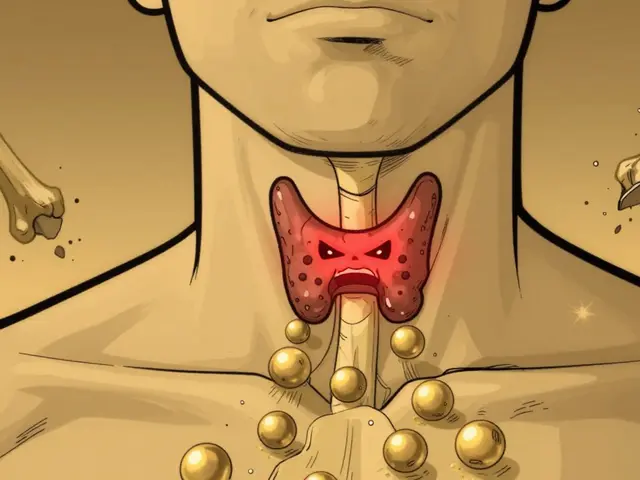Statins: What They Are, How They Work, and What to Expect
Did you know a single pill can shrink your heart‑attack risk by up to 30%? That’s the power of statins, the most prescribed cholesterol‑lowering meds on the planet. If you’ve heard the term tossed around or have a script in your hand, you probably have a lot of questions. Let’s break it down in plain English.
How Statins Lower Cholesterol
Statins block an enzyme called HMG‑CoA reductase, which your liver uses to make cholesterol. By throttling that pathway, they cut the amount of “bad” LDL cholesterol that circulates in your blood. Less LDL means fewer plaque deposits in arteries, which translates to a lower chance of heart attacks and strokes.
Who Really Benefits?
People with high LDL, a history of heart disease, diabetes, or a strong family record of cardiovascular problems get the biggest payoff. Even folks with borderline cholesterol can see a modest risk drop if they have other risk factors like high blood pressure.
One of the most common combo drugs you’ll see is Caduet – it pairs a statin (atorvastatin) with a blood‑pressure blocker (amlodipine). Buying Caduet online? Make sure the pharmacy checks your prescription and offers a clear return policy.
Typical Side Effects (And What to Do About Them)
Most people tolerate statins well, but a few experience muscle aches, mild digestive upset, or occasional headaches. If soreness feels severe or you notice dark urine, stop the pill and call your doctor—those could be signs of a rare muscle injury.
To keep side effects low, take your statin at night (your liver works harder then), stay hydrated, and avoid grapefruit juice, which can raise drug levels in your system.
Common Questions You Might Have
Do I need a special diet? A heart‑healthy diet helps, but you don’t have to overhaul everything. Focus on fruits, veggies, whole grains, and limit saturated fats.
Can I skip a dose? Missing one dose isn’t a disaster, but try to stay consistent. If you keep forgetting, ask your doctor about a longer‑acting statin.
How long do I stay on a statin? Usually for life, unless your cholesterol stays low and your doctor decides it’s safe to stop.
Tips for Safe Use
Before starting, let your doctor know about any liver issues, pregnancy plans, or other meds you take. Statins can interact with certain antibiotics, antifungals, and HIV drugs.
Get a baseline liver test, then repeat it after a few months. Most labs show no problem, but it’s a good safety check.
If you’re buying statins (or related combos like Caduet) online, verify the pharmacy’s licence, read reviews, and make sure they ask for a valid prescription. Cheap, no‑prescription sites often sell fake or expired pills, which can be dangerous.
Bottom line: statins are a proven tool for cutting heart disease risk. Use them responsibly, stay in touch with your healthcare provider, and you’ll likely steer clear of major cardiovascular events while keeping side effects minimal.
Ezetimibe vs Statins: Benefits, Mechanisms, and Smart Patient Choices
Curious about the buzz around ezetimibe and how it stacks up against statins? This detailed read untangles how ezetimibe blocks cholesterol absorption, breaks down the key outcome data you should care about, and uncovers when your doctor might reach for ezetimibe instead of—or alongside—statins. Dive in to learn who benefits, why outcome studies matter, and how to make sense of the latest cholesterol-lowering strategies. Get the real facts you won’t pick up from a quick doc visit.






